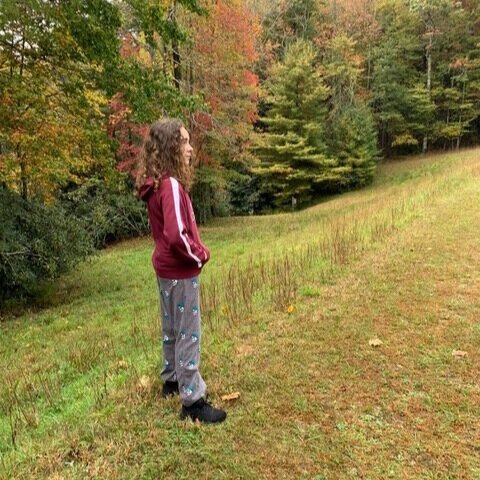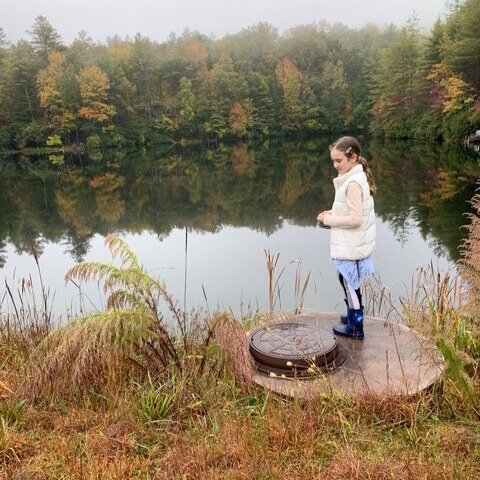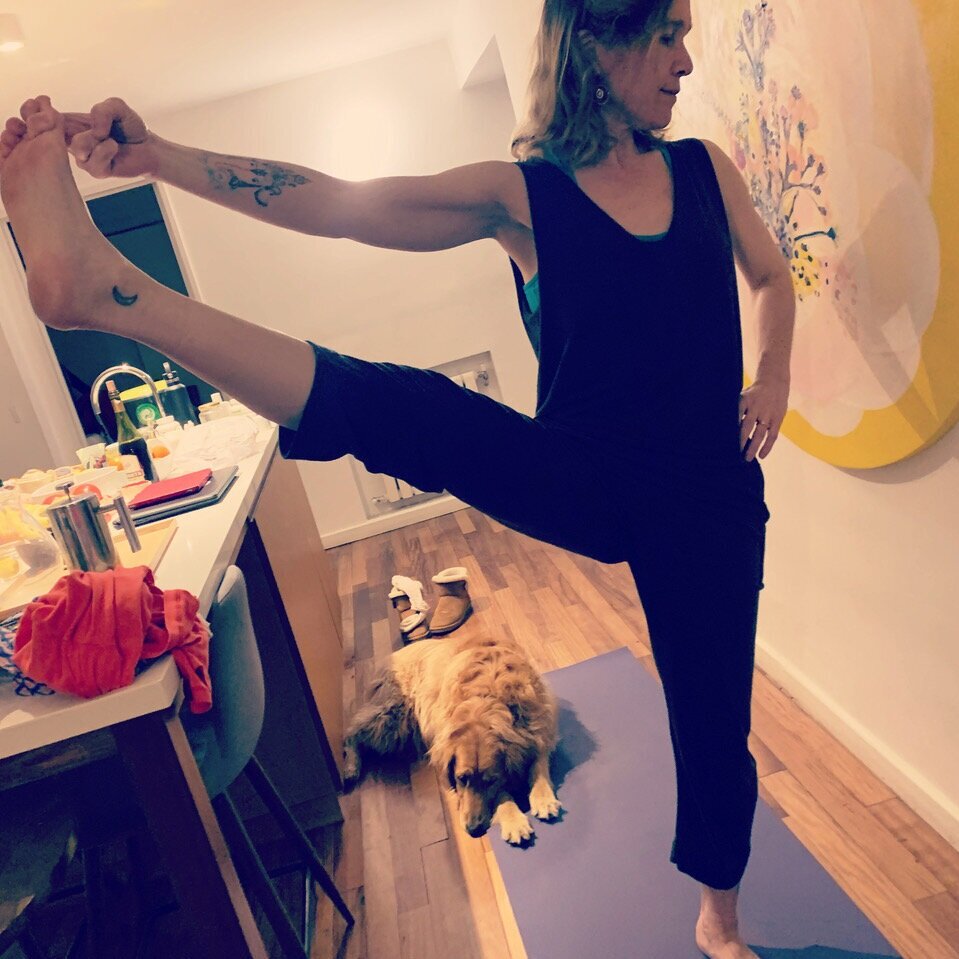A Way of Giving Over
Julia Napier
The past seven months have redefined us in almost every way: how we work, practice, communicate, grieve, teach, learn. It is impossible to describe the overhaul we have undergone, but the most significant changes I have experienced during this time are as a parent. I tend to describe myself in three ways: writer, yoga practitioner, mother. But the experience of the pandemic has recast this trinity into an all-encompassing field.
During my 13 years as a parent, I have oscillated between intuitive generosity and acute frustration at the demands of being a “good enough” mother. I have bemoaned my husband’s ability to continue full-steam ahead with his career while I prioritize our family over my work. I have missed my intellectual independence and simultaneously felt selfish for pursuing my dreams as a writer and contemplative practitioner. Loving, ambivalent, messy, committed. That’s the kind of mom I have been.
Until the pandemic. In a single day, the kids were home 24/7, requiring three meals a day, tech-support, emotional backup, and some semblance of autonomy as they molted into adolescence. Screen-time, that old battle, became a way of life. Gone was the satisfaction of dropping the kids off at school and beginning “my day.” In quarantine, I would race through emails at the kitchen table before floundering in the kitchen by mid-morning, the moment when I usually take a break from my work as an editor and translator to do my āsana practice. But instead of unrolling the mat, I would wonder “What the **** am I going to cook for lunch?”
Motherhood was suddenly a full-time job, while my husband followed his regular work schedule and moved to planet Zoom. We aimed for equity (I do lunch, you do dinner), but the emotional reality of motherhood was irrefutable; I could not tune out the kids and their needs in order to get things done. “The body is a Field,” says Krishna in the Bhagavad Gītā, “and he who knows this is called the Knower of the Field.” My children are a Field, and I am their Knower, even when I’d rather place that knowledge on hold. Had my son been outside and gotten some fresh air? Had my daughter spent enough (virtual) time with friends? Had they eaten a snack in the afternoon? Could I make sure they had a decent meal instead of pasta (again)? My efforts to find good answers to these questions were involuntary, akin to what the writer JM Coetzee describes as “an assent… a giving over…a Yes without a No. That is how I want to live.” This “giving over” is not a question of goodness but the deep pull between mothers and their children; it is also the consequence of bearing witness. Contemplative practice exerts a similar effect on the heart. When we pay attention, we become attuned to others, inextricably connected. Interdependence is a word we may use, citing ancient texts or climate science, but a family is the most tangible template I know. In the words of Thich Nhat Hanh, families inter-are.
Justi, Oli and Juan
As yoga practitioners, abhyāsa and vairāgya are the axes on which we turn. We practice (on our mats, on the cushion, interacting with others) and then we attempt to let go of the results (always more challenging than the practice itself). These twin principles mirror the unifying processes of life and yoga: we breathe in, we breathe out. One requires effort, the other release. If we cling too tightly to practice (or ideas, systems, results), we can’t unclench our bodies or minds--and we suffer.
During the first few months of the pandemic, I clung to the notion that it would be over soon, that we would return to something like normalcy, that I would drop the kids off at school and return to “my life.” I battled with reality (the cooking, cleaning, the end of privacy, the omnipresence of my husband and children), and I remembered the exhaustion of having a newborn, of existing entirely for someone else. We live in Argentina, where the lockdown has been unceasing since April. For seven months, the kids and I never left our neighborhood. We encompassed the entirety of each other’s’ worlds. And whatever was happening to my children was happening to me. Sad, nervous, bored, frustrated, excited, stir-crazy, relieved, hungry, hyper, tired; we were each other.
Julia practicing in life!
Then something happened. After all those years of plotting to accomplish my goals (edit and publish books, practice and master certain poses), I began to let go--not of the actual doing--but of the struggle between “my time” versus “parenting.” After a few months, I simply made lunch, fit my work in where I could, practiced at odd hours and allowed my children to pervade “my life.” The effort of abhyāsa seemed to fall away, as I dropped more easily into the flow of vairāgya. Our days assumed simple rhythms and comforts: playing basketball with a bucket in the backyard, watching too much TV, lying on the floor with the dog to contemplate her loveliness, rereading favorite novels, baking too many cakes, and eating too many avocados. The Field grew everywhere.
I would never ask for this experience and I cannot wait for the day when my children are able to return to school, to their friends’ houses, to a semblance of freedom. But at many times during the pandemic, as we have read or played or laughed, I have remembered a conversation between a disguised King Henry the 5th and a soldier on the night before the great battle of Agincourt. The soldier says that the King may show “outward courage” but probably wishes he were neck-deep in the river Thames, instead of facing a battle where his army is outnumbered ten to one. King Henry answers, “He [the King] would not wish himself anywhere but where he is.”
It can be hard not to wish ourselves any place than where we are. In a hospital room or a car accident or a failing relationship or a global pandemic, we often wish to be anywhere than where we are. But to “be here now,” is the heart of practice, of vairāgya, a way of giving over, a yes without a no. And that is how I want to live.
Julia and Chelsea
Julia Napier is a yoga teacher, writer and editor who lives with her family in Buenos Aires, Argentina. Julia also writes a blog in which she weaves together reflections on life and yoga using her extraordinary talent with words to offer interesting insights into how yoga and life are not separate at all. Her writing is deep and personal, contemporary and rooted in ancient teachings, and most of all very entertaining to read!







